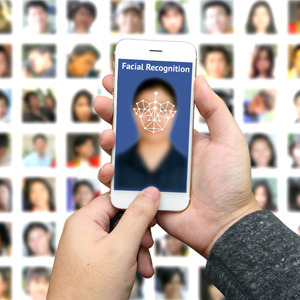Facial recognition may be unreliable, and nearly half of US adults are in databases, study finds

Facial-recognition databases used by law enforcement—which reportedly include photos of approximately 117 million Americans—have various accuracy problems, according to a report by Georgetown University Law Center’s Center on Privacy & Technology.
Driver’s license photos make up a significant amount of the data, National Public Radio reports. The larger a database is, scientists caution, the more chances there are for misidentifications, particularly if there are no legal standards for the technology. According to NPR, the FBI has stated that it uses facial recognition software for investigations, not positive identifications.
The Georgetown report, titled “The Perpetual Line-Up,” also found that the face recognition software doesn’t work well for people are dark-skinned.
“Darker skin has less color contrast. And these algorithms rely on being able to pick out little patterns and color to be able to tell people apart,” Jonathan Frankle, a computer scientist and one of the the report’s authors, told the station.
Also, security cameras are often mounted on ceilings, and their footage frequently doesn’t include good facial-recognition views.
How states take driver’s license photos is concern as well. Patrick Grother, a computer scientist with the Commerce Department’s National Institute of Standards and Technology, told NPR that if law enforcement is going to use driver’s license photos for a facial-recognition database, there should be photo standards for lighting, height and focus.
“Without those things, without those technical specifications, then face recognition can be undermined,” he said.
In a Los Angeles Times opinion piece written by Clare Garvie from Georgetown Law’s Center on Privacy & Technology and Neema Singh Guliani of the ACLU, the authors called for legislation to regulate law enforcement use of facial-recognition software.
“Police generally cannot track your location without a court order—yet in many jurisdictions, there are no restrictions on police accomplishing these same ends using remote cameras and face recognition,” Garvie and Guliani wrote.



